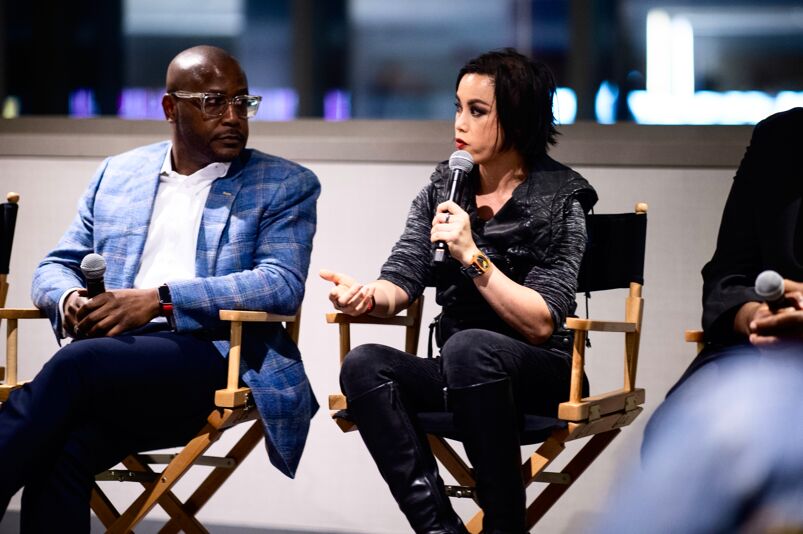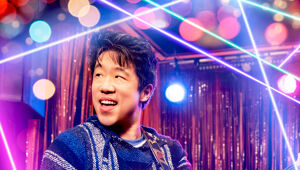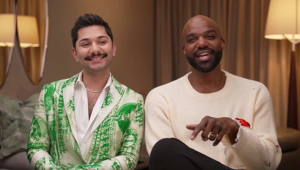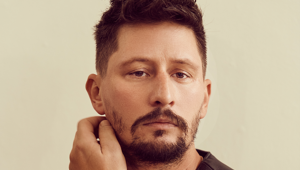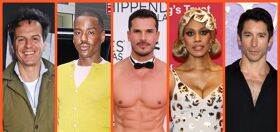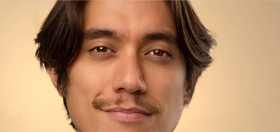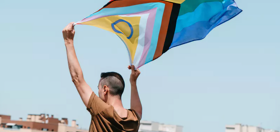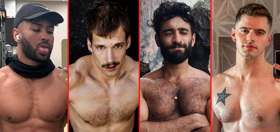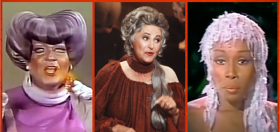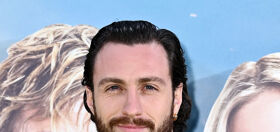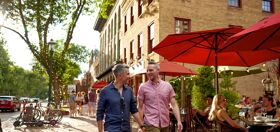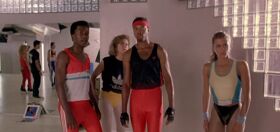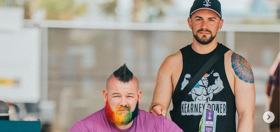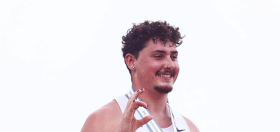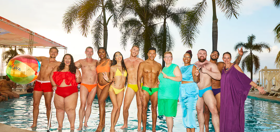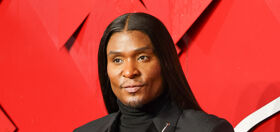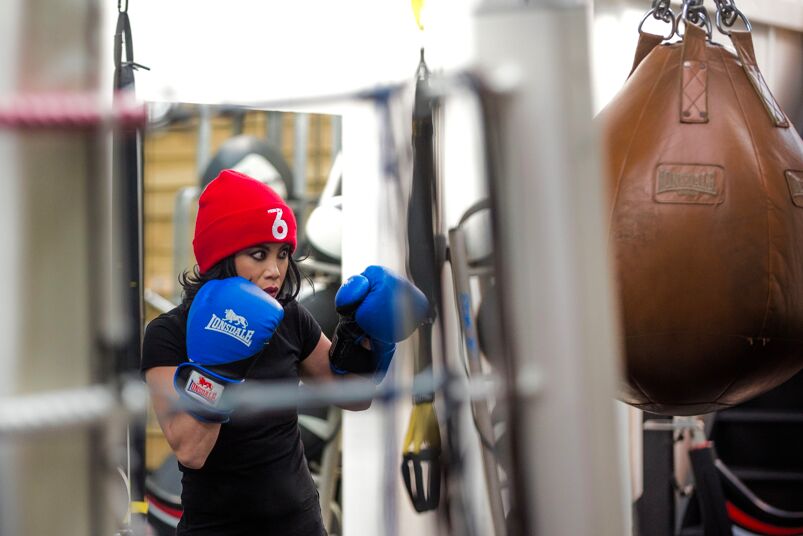
It’s not an exaggeration to say that sports saved Amazin LêThi’s life.
Dropped off at an orphanage in Saigon, Vietnam, Amazin was adopted by foster parents in Australia, where she was subjected to racial taunts throughout her childhood. The incidents were humiliating: teachers calling her out in class, students laughing at her perils. She felt isolated and alone.
Desperately in search of an outlet, Amazin turned to bodybuilding, and started her daily routine of 100 dumbbell curls, sit ups and push ups. For the first time, she started to see herself.
How about we take this to the next level?
Subscribe to our newsletter for a refreshing cocktail (or mocktail) of LGBTQ+ entertainment and pop culture, served up with a side of eye-candy.
“If I hadn’t participated in sports, I wouldn’t have gone on the journey that I’ve been on. I wouldn’t be speaking to you,” she said.
Today, Amazin is an LGBTQ+ sports advocate, relying on her range of identities and experiences. As a queer Vietnamese woman, she’s lived a different life than most elite out athletes on the international stage.
“At the last Summer Olympics, we say we’ve never had so many out athletes, but we need to rephrase it: we’ve never had so many out white athletes,” she said. “As an Asian person, your journey is very different. Even though they see people like Tom Daley, it’s hard for an Asian person to come out, because his journey is so different than an Asian LGBTQ+ athlete in swimming.”
It’s true. Out of the 186 out athletes at the Tokyo Games, there were only three from Southeast Asia, and they were all from the Philippines. There weren’t any out athletes from Southeast Asia at the 2022 Winter Games in Beijing.
The stark disparity is one of the main reasons Amazin pushes so hard for inclusion. The first Asian ambassador for Athlete Ally, she helped the Obama Administration organize a “Spirit Day” event with GLAAD and the White House Initiative on Asian Americans and Pacific Islanders.
Amazin is currently an ambassador for Pride House, an inclusive space for LGBTQ+ folx at the Paris Games. More than most, she knows the power of a strong platform.
“It’s so important for me to raise my voice and continue to share my story,” she said.
With the Summer Games just three months away, Queerty recently caught up with Amazin to chat about her connection to bodybuilding, meeting President Biden and her new athletic journey as a competitive shooter. Here’s what she had to say…
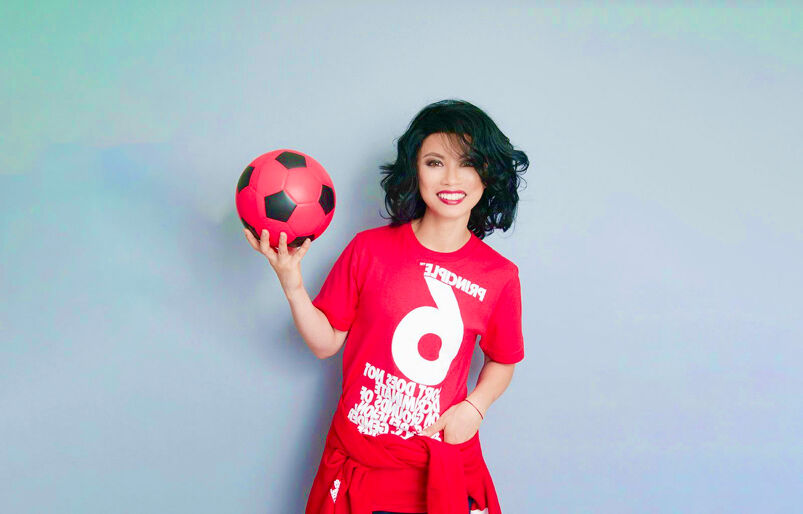
QUEERTY: What sparked your interest in shooting?
AMAZIN LÊTHI: With all of the work I do in sports around equality, I’m constantly meeting elite professional athletes. And my spark around competing started again. For shooting, I don’t have to train physically every single day. It’s a different kind of sport. It’s really training your mind.
I love entering rooms and spaces where you don’t normally see people who look like me. In the U.S. with the gun culture, it’s very white and very Republican. When you look at shooting competitions, you don’t see many people who look like me, and there are very few LGBTQ people. But I love the sport. Aside from being mentally exhausting, t’s very physically exhausting. I find it a very calming sport as well. In other sports, your mind can wander, but in shooting, you have to stayed focused for that time you’re shooting. It helps keep me in the present.
What kind of looks do you get when you step into the room?
It’s very interesting! I train in the South, but it’s actually one of the friendliest sports that I’ve come across. Maybe it’s because everyone has a loaded gun, so there’s a politeness or currency. But when you’re sitting outside waiting for the gun club to open, it’s not like you have a loaded gun in your hand. I think it comes down to this gun culture. We can bond over guns. There’s a strange culture in the gun community about this bond over guns, and it doesn’t matter. Whereas in other sports, it really does matter what you look like. There’s something about the gun culture.
Shooting is also a very individual sport. When you’re at the range, it’s just you and your trainer practicing. I haven’t encountered any hostility. I’ve actually been celebrated within the shooting community, because as an athlete, I’m good at shooting!
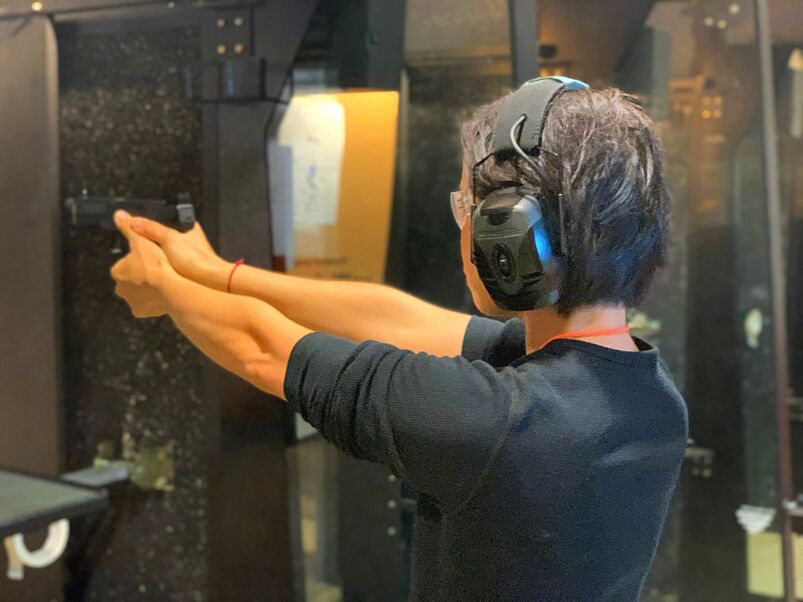
I know that bodybuilding has played such a big role in your life…
When I first started weight training, bodybuilding is where I felt the confidence to see myself for the first time. It gave me the self-worth to know that I could show up as myself, even though I was in a sport that has very rigid gender norms. There is so much sexism within bodybuilding, and it’s that difficulty of understanding that women can be muscular and feminine at the same time. But it’s really where I found myself, and I think for LGBTQ kids, sports is where we can find confidence and community. For me, bodybuilding gave a lot of that.
When I first walked into the gym, I felt like I couldn’t be myself. But when I first heard about Arnold Schwarzenegger’s story through reading bodybuilding magazines as someone who looked different, sounded different, had a funny accent and came from a faraway place, to use the sport of bodybuilding to celebrate himself, in that moment I saw myself. I saw myself who was different like me, and then I saw that path where I could celebrate myself.
What was your training regimen like?
There’s a misconception that females who work out with weights look like men, and you can see their biceps bulging out. I’ve never looked like someone who works out. I’ve always looked like someone that maybe just ran, or is naturally slim and athletic looking. Bodybuilding just became my life. It was the one thing that kept me going in a world where I felt like I couldn’t be myself, and someone who consistently struggled with their sexuality, because I felt like I couldn’t see myself in society
It was an absolute obsession in terms of working out every day. I used to weigh my food and my protein literally down to the gram. My whole life was in the gym, then I qualified as a trainer, so I was in the gym from 5:00 a.m. until 10:00 p.m. Now, I look back and think it’s like brushing my teeth. I can’t remember a time when I wasn’t working out like Arnold Schwarzenegger. My last breath will probably be lifting dumbbells!
You’ve had so many amazing experiences in politics and advocacy work. What stands out the most to you?
I feel my greatest achievement is that I’ve lived up to the goal I’ve had as a kid: I would use sport as a platform for change. I never thought it would be such a big impact, in terms of what I’ve made and being able to write books and sit in front of governments, to be the only Asian LGBTQ athlete in the world to hold so many ambassador roles. I can’t think of one thing. Every moment has been a gift and a nugget. But I never set out to be an advocate. I always had this one goal, which is the power of storytelling, because I never saw my story.
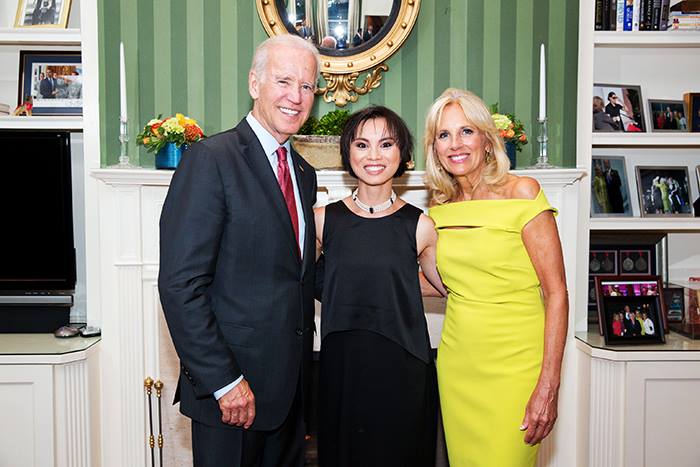
When you visited the White House during the Obama Administration, you met President Biden. What’s he like?
When I met him, he was vice president. I just remember listening to his speech at the reception. He was so presidential, you could tell he was going to become a president. He’s done so much for women, Asians, the LGBTQ community and other minority groups.
How did you get involved with Pride House, and what kind of work do you plan to do with them?
For me, it was a natural extension. Also, there’s a massive Asian community in France, and it’s so important that the Paris Olympics have Asian LGBTQ representation, so we can have these conversations. If I wasn’t an ambassador, there probably wouldn’t be an ambassador from the [Asian] LGBTQ community. It’s important we continually have representation at the Olympics.
